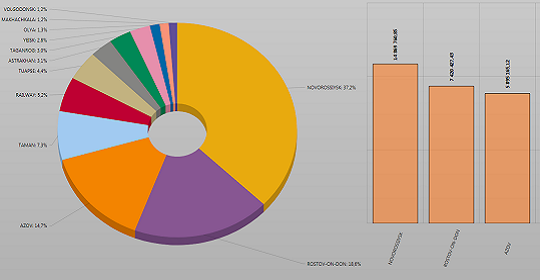A change of government in the country could call into question 50% of Kazakhstan’s wheat exports.
After the political upheaval in Kabul, food supplies from the country were under threat.
The accounts of the Central Bank of Afghanistan are frozen, there are uncertainties with the formation of the budget.
This situation raises concerns about the wasps of the Grain Union of Kazakhstan.
For many years Kazakhstan was practically the only supplier of grain and flour to Afghanistan.
On average, Afghanistan imported 3 — 3.5 million tons of flour and grain.
In 2020, about 2.2 million tons were supplied from Kazakhstan directly, another 721 thousand tons of flour (made from Kazakh grain) were supplied from Uzbekistan — which corresponds to 1 million tons of wheat.
Previously, supplies to Afghanistan were paid from the US budget. Now, when the assets of the Central Bank are blocked, and the country cannot conduct settlements in dollars and euros, no one can answer the question: who will pay?
Analysts suggest that the situation 20 years ago will repeat itself: humanitarian aid will become the main source of food supplies to Afghanistan.
The UN and the European Union are discussing the possibility of an urgent supply of food, because a humanitarian catastrophe is impending on the country.
But this is one side of the question.
Other: Kazakhstan’s difficulties in realizing its export potential due to the possible loss of the Afghan market.
This year, Kazakhstan expects a grain harvest at the level of 15.3 million tons, of which, presumably, 6.5-7 million tons should be exported, including almost half to Afghanistan.
If Afghanistan stops importing grain from Kazakhstan, then Kazakhstan needs to find buyers for the vacated volume of grain.
That is why it is important for the country not only to keep its traditional sales markets, such as Uzbekistan, Tajikistan, Turkmenistan and Kyrgyzstan, but also to increase the volume of exports to Iran.
Today, Kazakhstan has a competitive advantage over exporters from Russia due to the absence of export duties.
That is why Georgia, among other things, is considering the possibility of importing Kazakh grain against the background of rising prices for Russian grain.

